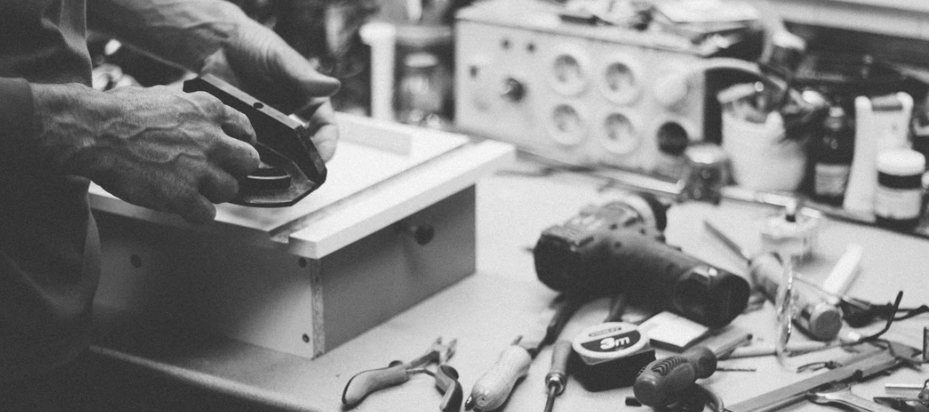When I’ve hired, or evaluated candidates, in the past, I consider hard skills and soft skills. There’s lots of talk about soft skills and how important they are. At a point they supposedly become more important than hard skills. I want to share some important thoughts to help you put the two into perspective.
I recognize that some people don’t like the phrases “hard skills” and “soft skills.” I’ll let them debate that… for the purpose of this post it doesn’t matter what we call them… just imagine whatever favorite phrases you want :p
HARD SKILLS
Hard skills are the skills you need to do the job. If you are a widget maker and need to run machinery, can you run the machinery? Have you had training? Do you have certificates or licenses?
If you need to pull levers, how many times have you pulled levers? How many levers have you pulled in your life? Have the levers been different colors, or different sizes?
If you program, which languages do you know, and how proficient are you at those languages?
If you write (ie, a marketer), how much have you written? Do you write blog posts, or ebooks, or copy for websites, or manuals?
If you train people, what methodologies do you use? What size is your idea group, etc.
Hard skills can usually be trained in a classroom and on the job. You likely can learn hard skills for the rest of your career. I had some plumbing work done recently and the licensed journeyman plumber was stuck… he called in his mentor, a master plumber. They were both licensed but the master plumber had 30 years on the job and had seen a lot more than the younger journeyman. I appreciated that the journeyman plumber was wise enough to recognize he had reached his limits and wanted to consult with someone more expert.
Hard skills can be hard to define. Usually we say things like intermediate or expert to describe our hard skills, but those descriptors can be meaningless. I know a programmer who said he was intermediate at a certain language but I would have said he was expert. There is too much subjectivity from the person self-assessing and too much interpretation from the person on the receiving end.
Tangent: This is why Pluralsight Skills IQ is so awesome for techies. Instead of arbitrarilly guessing your proficiency you can essentially rank yourself against thousands of peers and come up with a number that tells you what percentile you fall in. It’s way less subjective. If you can find something like that, to assess yourself against others, DO IT. Pluralsight Skill IQ is free, btw.
When Hard Skills Are Important
As a hiring manager I *might* ask you about your hard skills in an interview. If I do, it’s usually in the first interview, and less with each interview that follows.
I say might because I might have already looked you up and done a bunch of research on you before you come in. This is a critical concept… before you get an invitation to the interview I will have already answered this question:
Can this candidate do the job?
This is 100% a hard skills question. My invitation to you is this: communicate the answer to this BEFORE you even get to the interview.
How do you do that? There are a few elegant ways:
- Have a portfolio. A portfolio is not just for artists. You should be able to create some kind of documentation or collection of projects or thoughts or writing to showcase your work. If you can’t showcase your work because of confidentiality then here’s a simple suggestion: write some articles on LinkedIn or Medium or your own blog. The articles should showcase your professional breadth and depth and passion and experience. When I see your portfolio I should say “yep, this person can obviously do the job. The experience and passion and thoughtfulness is here.”
- Have testimonials. You can tell me you are qualified, but what if you had peers, colleagues, bosses, and customers tell me how good you are? There are many ways to collect testimonials… I usually recommend LinkedIn Recommendations. This is something you can’t fabricate or falsify, and they are pretty easy to get. I talk about how to do this in one of my LinkedIn courses on Pluralsight (one or two, I can’t remember which). Here’s a quick tip: too often recommendations are too generic and weak. I suggest you ask for a recommendation and say “It might read something like this” … and then hit the main points you want to hit (bringing out specific hard skills). I cover this in my course, but #AMA.
- Have ministories. In my personal branding course on Pluralsight I talk about crafting ministories… I think I talk about it in the LinkedIn profile course as well. These are SO powerful to (a) claim you have a skill, or can do a thing, and then (b) substantiate and quantify your claim using a simple story. These should be used on your LinkedIn profile, other online places where you market yourself, in social media interactions (like a post on Twitter, Facebook, or LinkedIn), when you network with others face to face, and definitely in interviews.
Make those three things easy to find and understand.
The most important thing I want to communicate about hard skills is that they help you get into the interview. I do not ask you to an interview to see if you can do the job. By the time I have you in the room I assume you can do the job, but I might ask some qualifying questions to dig deeper into your hard skills.
BONUS: if you can quantify the value of your hard skills, all the better. When you show me you can do a certain job with a certain proficiency and you understand you bring value, I LIKE THAT.
SOFT SKILLS
Soft skills is the funny-named cousin to hard skills. This is the one I hear people saying “we need to rename that!” I don’t care what it is called but society calls it soft skills and I doubt we’ll see that change anytime soon.
Soft skills are harder to quantify. “I’m a really good presenter” is very subjective. Too subjective. I once interviewed someone who was an excellent presenter… until this person did a presentation. I learned they thought they were excellent but I was cringing a lot.
It’s a lot easier to quantify proficiency in hard skills because we have tests and assessments, but there isn’t really a test or assessment for presenting. A presentation received very well by one person might have been received horrible by another person.
A lot of times soft skills are just kind of … felt. Perceived. Gut reaction. You might tell me you are a great listener but when we actually talk you do all of the talking, talk over me, and don’t give me a chance to talk at all. I’ve been there. It can be equally funny and frustrating.
Soft skills have to do with cultural fit. Is your communication style and demeanor a good fit for our team or our culture? I hired someone once who I thought was a fantastic fit… turned out they were a horrible worker. I have passed over people who had soft skills that were just not a good fit… either too quiet or too loud. This wasn’t anything I could read on a resume or LinkedIn profile… this is something I had to experience myself.
My courses on Pluralsight are all about soft skills… 36 courses and counting. How to communicate outbound (in writing, presenting, talking, etc.) and how to communicate inbound (becoming a better listener is one of my most popular courses)… there are probably a couple hundred soft skills courses on Pluralsight to choose from. If you want a 30 day pass hit me up and I’ll see if I can get you one.
When Soft Skills Are Important
A few months ago I was chatting with my fifteen year old who was asking what I do for Pluralsight. I told her I create soft skills courses…. courses on communicating, listening, working with different personalities, emotional intelligence, and job search and career management. She said “oh, most of Pluralsight’s courses teach people how to do the job and your courses help them get jobs and promotions!”
YES!
I wish I had written down word-for-word what she said because it was better than what I just wrote, but that’s the idea.
Soft skills help you get the job.
Soft skills help you get promotions.
When I bring you in for an interview I want to know if you will be a good addition to our team. I want to know if you’ll be as “cultural fit.” That doesn’t mean I want to hire you if you will fit in… maybe I’m looking for someone to shake things up and bring us up a few notches. But I definitely want to know about your likability or coolness factor. I’m not looking for the most popular or likable person, but I certainly want to know if I’ll like working with you.
My team and culture are different than where you just left. I don’t want to go backwards on our team environment, for sure. The only way I can really assess that is by bringing you in and chatting with you. Behavioral questions give me an insight into your soft skills and communication. Listening and watching how you think, react, respond, and treat others gives me insight into your soft skills.
By the end of the first interview I usually know whether you can do the job or not (see hard skills, above). I will have an idea of your soft skills, and whether I think I’d like to work with you or not. If I think you can do the job and you might be a good fit, and I might like working with you, you make hte cut and might come in for another interview. Usually this is with a panel, or with other people. Of course they’ll ask about hard skills because they haven’t done the same level of research on you as I have, and they’ll want to know “can this person do the job?” But when we all circle back and talk about the candidates I think most people will come back with their gut feel. By that stage everyone should be qualified to do the job, so hard skills isn’t much of the conversation… we tend to focus on who we “like.”
How does someone “like” you in an interview when they know you can do the job? It comes down to your soft skills. Your emotional intelligence. Your likability.
The Great Thing About Hard Skills and Soft Skills
I think the great thing, and a hopeful message, is that you can learn and improve your hard skills.
And, you can work on and improve your soft skills.
Improvement in either area will take time and practice and intention. But you can definitely improve.
And that is why I hope to continue creating courses for you.


